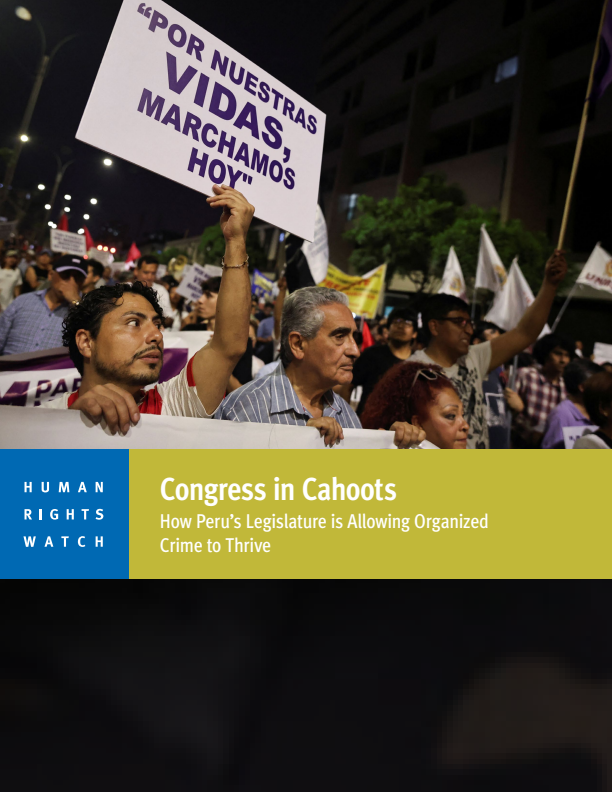By Human Rights Watch
In recent years, criminal groups have expanded their influence across Peru. Homicides have more than doubled since 2018, with contract killings and extortion reaching record highs. Illegal mining has increased, leading to pollution of rivers in the Amazon and driving violence against human rights defenders and Indigenous leaders. Congress in Cahoots details how Peru’s Congress has undermined judicial independence and weakened prosecutors’ ability to investigate and dismantle organized crime groups—including those responsible for environmental destruction. It also documents failures by the administration of President Dina Boluarte to respond effectively to Congress’ attacks on the rule of law and to the expanding influence of organized crime. The Organization for Economic Co-operation and Development (OECD) should urge Peru, currently trying to become a member of the organization, to implement meaningful reforms as a condition of membership. Peruvian authorities should uphold the rule of law, restore judicial independence, and protect civil society groups. Peruvians deserve a Congress and executive branch that work to ensure their rights, including to be safe from violence by organized crime groups.
New York: Human Rights Watch, 2025.. 48p.



